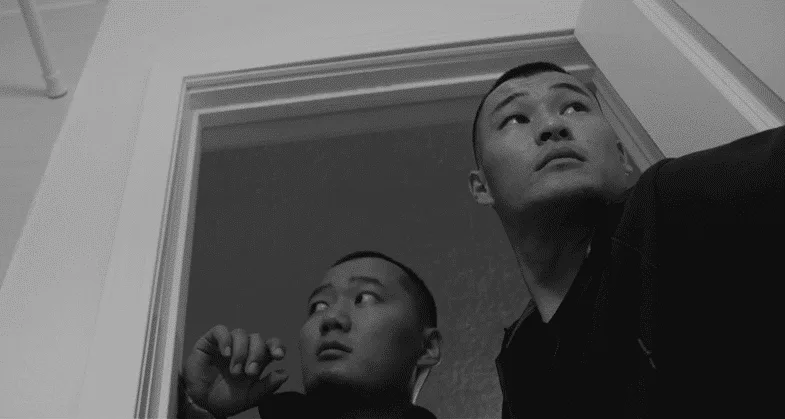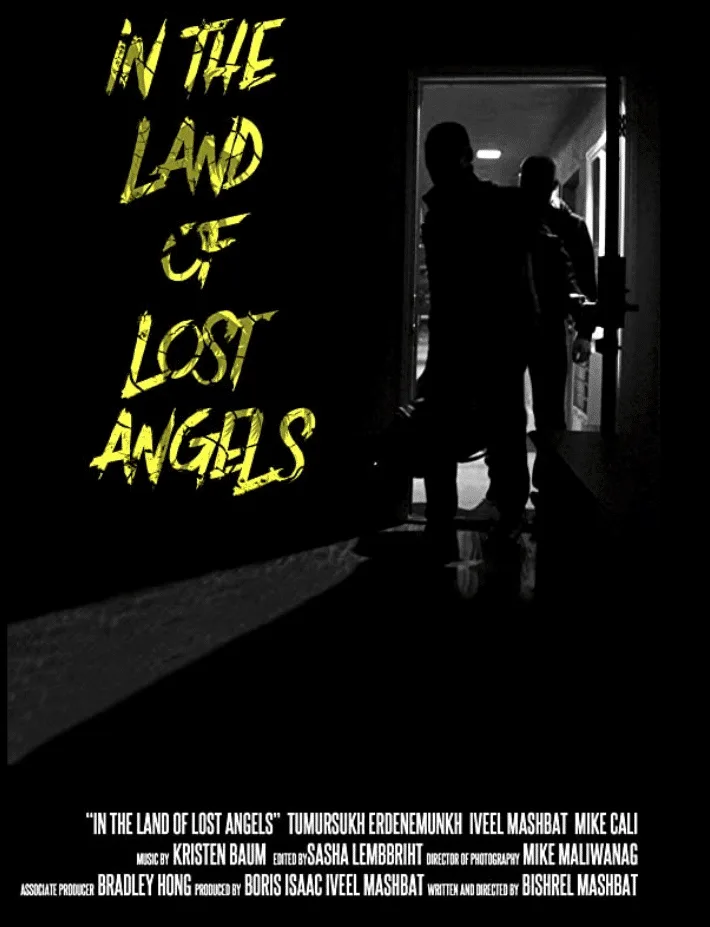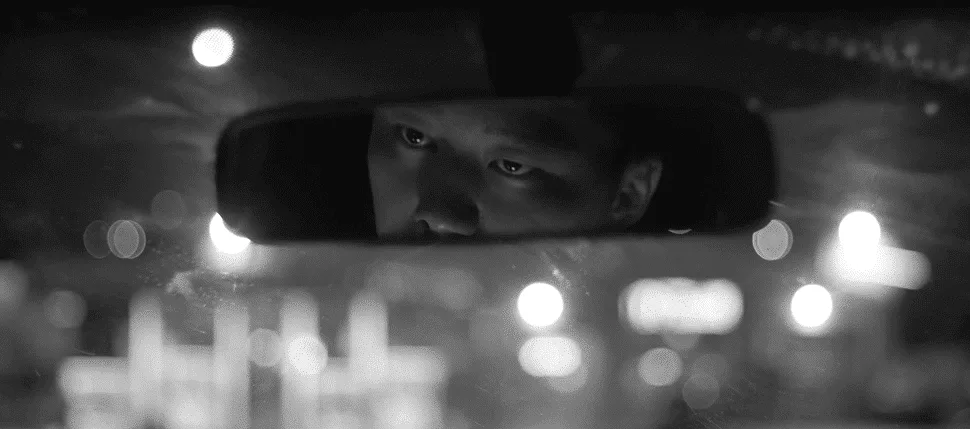
My knowledge of Mongolian cinema, or even Mongolian language cinema is slim to none, so I was interested by the premise of In The Land of Lost Angels, a crime drama which follows the story of two ethnic Mongolians, one an ex-pat, who hit on a way to make some easy money. So begins a vast number of crime dramas, right? There are a lot of familiar elements here, as well as good and not so good development points, though overall it’s an engaging watch, above all else for the ambitious way in which director and writer Bishrel Mashbat splices several genre elements together, usually very successfully.
We start with ex-pat Ankhaa (Erdenemunkh Tumursukh) phoning home, where it seems things are not going so well, with a seriously ill younger brother and parents who fear they will have to sell their house. Don’t worry about that now, Ankhaa reassures his father: I have a great job here in America, and I’ll be able to cover your debts. Uh-oh. As elsewhere in the West, immigrant populations don’t tend to get top pick of the lucrative jobs; and, in its first little bit of circularity, the film has already shown us Ankhaa with another guy, Orgil (Iveel Mashbat) both driving along voicing their fear that there are police around. Let’s just assume that Ankhaa has told his dad a lie, but that his motives are sound. Before long, we see these two clearly preparing for some sort of criminal activity, with Orgil perhaps the more prepared of the two, but they each seem very nervous. These nerves will not serve them well later.

Finally, we see what their big plan is: at some point in the recent past, they have hit upon the idea of a kidnapping, selecting the son of a wealthy man as their target. They’ve got a plan, and they get their guy, taking him to an apartment they’ve booked ahead of time. Things lag a little here as the two men wait around, hoping that Mr. Sanders makes the right decision, and agrees to their ransom demands, However, this section of the film does allow for some ‘comedy of errors’ stuff, which works in its own right, though it again shows the audience that these guys are perhaps not as prepared as they really should be. I did laugh at the exchange: “How is he?” “He’s made some noises a tied-up person would make.” But, by and by, this situation has to come to a head.
So as we’ve already said, the essence of the story here is very familiar: two guys, against the world, committing a heinous crime to get ahead but almost invariably messing up along the way. But there are lots of blends of styles here, impressive in a first feature. It’s shot in glossy black and white with lots of shadow and silhouette, whilst the driving scenes – of which there are a few – look almost noir-ish in places, the long, dark city highways looking quite timeless on screen, despite the presence of 24-hour garages and such. But then on top of that, the film opts for an informal style of dialogue which sounds partly improvised, and includes a lot of kitchen sink style realism, with lingering shots on everyday activities like staring at the TV, ambling through a forecourt, and so on. The camera appears to be handheld. There’s also the ubiquitous on-screen chapters, which I’ve said elsewhere I’m not keen on, but it just goes to show that Mashbat has thrown everything at this film, and taken pains to vary the approaches taken throughout.
The performances themselves are solid, though fairly unemotional – which may be a cultural thing to an extent; on the subject of which, although there are some references to Mongolian culture (and Mongolian is spoken for the biggest share of the film), these are usually fairly oblique. A few comments on ‘white culture’ vs. Mongolian culture, and the fact that it seems ex-pats often need to rely on other ex-pats when in trouble, but in a broader sense, Ankhaa’s and Orgil’s woes could happen to anyone. You do find yourself caring for these two, as flawed as they are; I guess that’s a testament to how they’re both written and acted. That all being said, the film decided to take an equally oblique turn in terms of how this story was all wrapped up, heading in a different direction than expected and fading away, rather than burning out. I was left with a feeling that I would have liked a more firm resolution. Other viewers may feel differently, but the style of the pay-off wasn’t for me.
Regardless of a few issues, In The Land of the Angels has much to offer and it’s a testament to Bishrel Mashbat’s aspirations that he was able to do so much with what I’m guessing was a vanishingly small budget. Fans of crime dramas, particularly crime dramas which opt out of the expected route through, will find a lot to like here and should check this film out.
